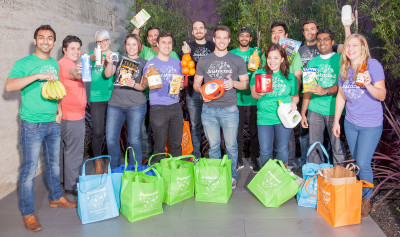SAN FRANCISCO—Following the lead of transportation for-hire service Uber, grocery-delivery service Instacart has made a move to classify some of its hired workers as part-time employees as opposed to private contractors. This means employees, or “shoppers,” will now be entitled to workers’ compensation, as well as unemployment, Social Security, and Medicare benefits. Full-time benefits such as health insurance and paid sick leave will still be unavailable.

The change were implemented on Monday, June 22 for several hundred workers in Boston and Chicago. The rest of the cities which include San Francisco, Los Angeles, and New York will follow suit in the coming months.
Among the company’s delivery regions in Los Angeles include Santa Monica and Hollywood.
The San-Francisco based company allows user to order groceries from popular chains like Whole Foods, Costco, Safeway as well as various regional chains. Approximately 7,000 shoppers are currently under hire across the country for Instacart, which was founded in 2012 and recently valued at $2 billion. The company features a live delivery tracker to help the customer monitor the progress of their shopper.
For users and shopper alike, Instacart has proved to be a popular alternative to the traditional shopping experience. On its website, one San Francisco shopper, Shawna Haner, shares, “When I am shopping, I never feel like I am actually working.” One of the main draws of Instacart, like most other for-hire companies, has proved to be the flexible work schedule it offers, something the company promises not to do away with following the change in policy.

Speculation has arisen that the company could see a rise in prices for its services with the added expense of its shoppers increased compensations. The company aims to maintain an affordable service to its customers, even being involved in a special partnership with Smart & Final. The goal is to make things easier for families on a tight budget in the Los Angeles and San Francisco areas to use the service.
By Pamela Rios






